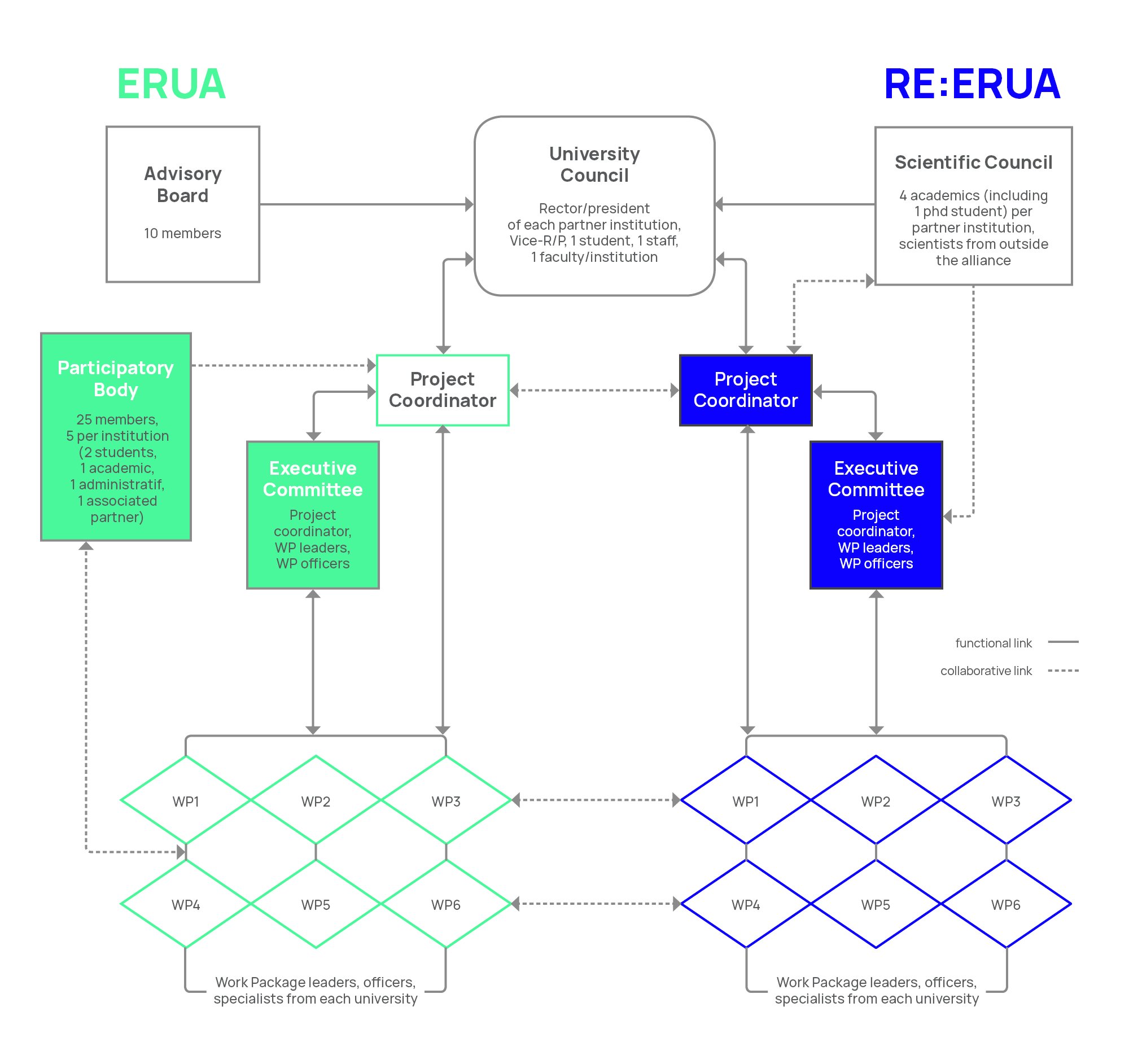As an inclusive alliance, ERUA distributes responsibilities among all partners, allowing them to participate on an equal footing to the implementation of this common project.
The alliance is governed by two main decision-making bodies: the University Council and the Executive Committee.
- The University Council is the policy and decision-making body of the Alliance which is composed of the Project Coordinator associated with rectors, vice-rectors, faculty representatives, staff and students of all five partner universities.
- The Executive Committee is the main steering body of the ERUA, responsible for the overall implementation and monitoring of the project.
In addition, a group of external experts, called the Advisory Board, has been established to provide independent strategic advice from experts in relevant fields. It is in charge of ensuring that activities can benefit from the best possible conditions and are run according to the most efficient and effective utilization of educational, financial and technical resources.
Finally, in order to ensure community engagement in the alliance’s development, ERUA has set up a Participatory Body. It is an experimental democratic body that aims to foster the expression and the defence of the general interest of the ERUA community, through the evaluation of the relevance of the actions undertaken and in relation to the daily realities of the beneficiaries. It thus positions itself as an intermediary between the governance bodies of the Alliance and the university community.
